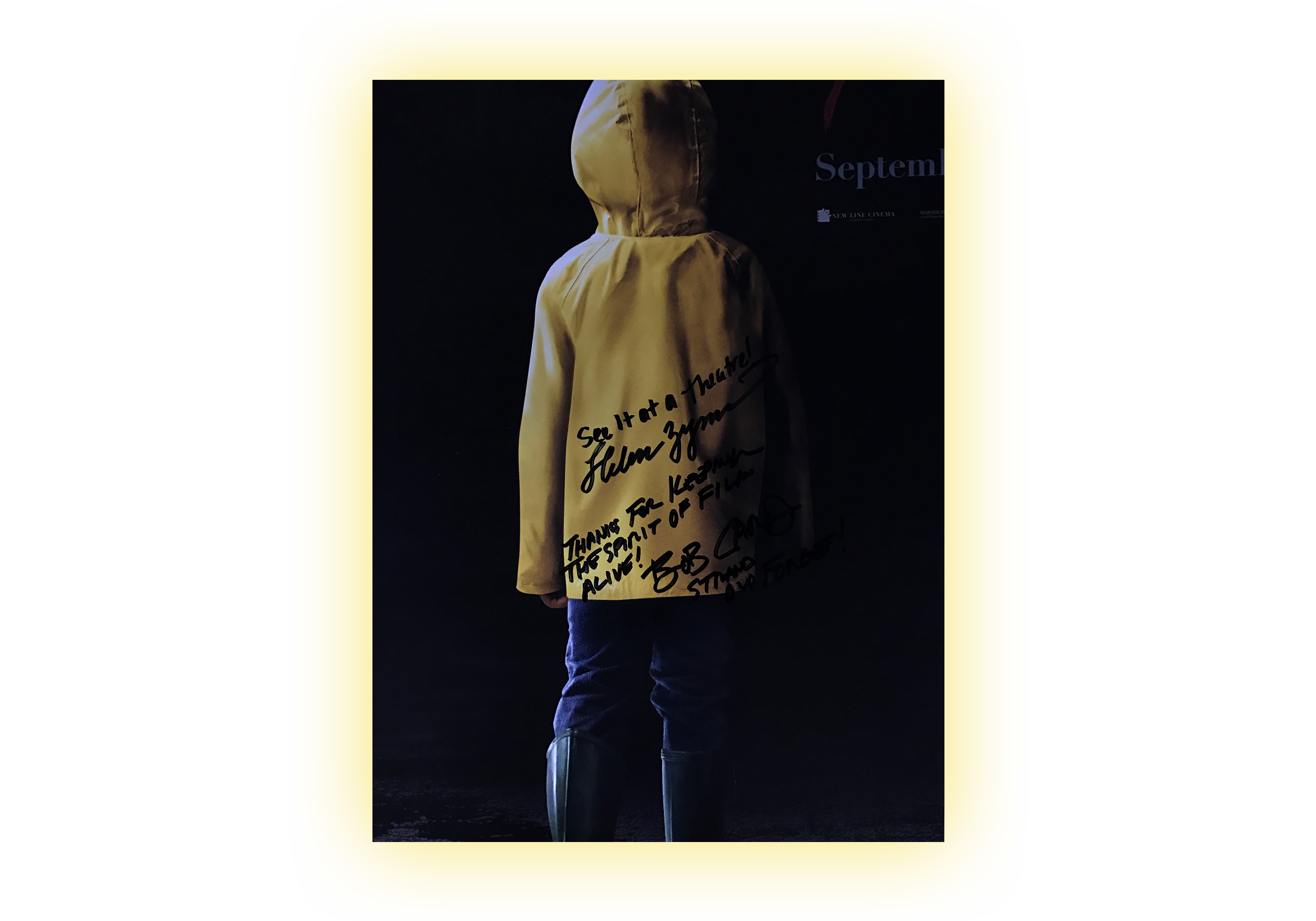
Every summer, the small vacation town of Old Forge, NY swells to double, even triple its resting size with families seeking downtime in the pines, or a soft scare. It’s home to the Enchanted Forest Water Safari, one of the region’s most beloved water parks, and a gate to the Adirondack forest, where black bears rummage in every dumpster and the evening fog is cut with campfire smoke. It’s also the site of the historic Strand Theatre, a Film Fun award-winning theatre that’s offered shelter to generations of movie lovers through every Good August (The Others) and Bad September (Hearts in Atlantis).
On September 2, 2017, Keaton and Mike got to sit down with Bob Card and Helen Zyma, co-owners and operators of The Strand.
They had been to the theatre the night before to see The Hitman’s Bodyguard: this marked Keaton’s first visit since Dr. Doolittle 2 in 2001, and Mike’s first since Signs in 2002. And now they were back, on what was perhaps one of the slowest weekends at the nationwide box office since they left.
That Saturday afternoon was cooler than expected. From a distance, it looked as though the waterslides at Enchanted Forest weren’t running water. A brisk wind wound down from the Hollywood Hills, whose foliage had already begun to turn. Mike and Keaton hurriedly finished off a large pizza at Slicker’s, an Old Forge staple situated just over the hill from The Strand. They could see the shining marquee from their booth. They paid the bill, crested the hill and found, once more, the husky Noah waiting for them, or the children they were, beneath the marquee. He lay next to a sign reading “Popcorn to Go.”
They’d get to the popcorn later, but first they had a few questions.
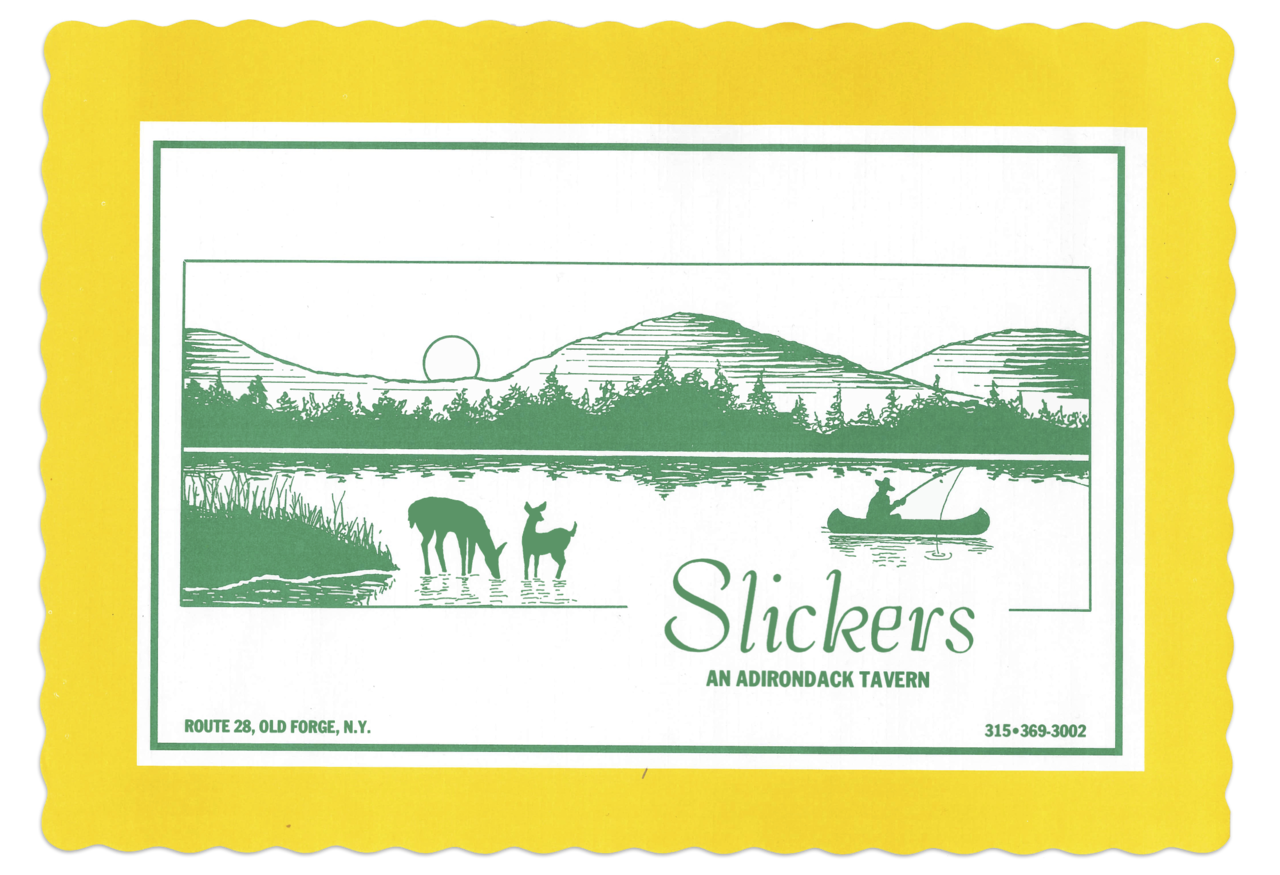
[Bob, Helen, Keaton and Mike are seated in a memorabilia-filled corridor beside a theatre in which Wind River is currently playing to a sizeable audience. Keaton is wearing a Gigli sweatshirt.]
Keaton: Do you remember how many people saw Gigli here, back in 2003? [Everyone is silent.] Like 2?
Bob: Yeah.
Mike: I think we wanted to start by asking you about the summer, as the 2017 season winds down. It’s Labor Day now, it’s the last big weekend—what’s your perception of what have been some of the biggest hits, or losers? What did moviegoing feel like overall?
Bob: It was a very strange summer, especially if you’re talking end of June through August. For whatever reason some of the bigger movies are getting released now at the end of April and beginning of May, shifting toward when there’s not a lot of activity in places like this.
Helen: Our summer hasn’t even started then.
Bob: For us, I think the biggest attendance we had was Despicable Me 3, which opened June 30th.
Helen: Wonder Woman did well.
Bob: That was great. That hung in there for about several weeks or so. Oh, sorry, you can squeeze past.
[A moviegoer from the Wind River auditorium squeezes past towards the bathroom.]
Bob: But August, they really forgot about August. The Dark Tower was released, and [The Hitman’s] Bodyguard, and then a lot of other little pictures.
M: How did Annabelle do?
H: We usually don’t do well with horror films, and that one did better than we expected it do.
B: And that was August 11, right? And we’re still playing it. I don’t know what The Conjuring did. I don’t know. It was a little lackluster, the summer of 2017. It had a lot of promise.
K: There’s definitely less to hold the box office up at the end of the summer now. That’s the overarching narrative, right? The tentpoles are moving around the calendar, Batman vs. Superman coming out in March, for instance—at one point a Batman movie outside of June or July felt unbelievable. It’s interesting to hear that from the point of view of a vacation town that prospers in the summer.
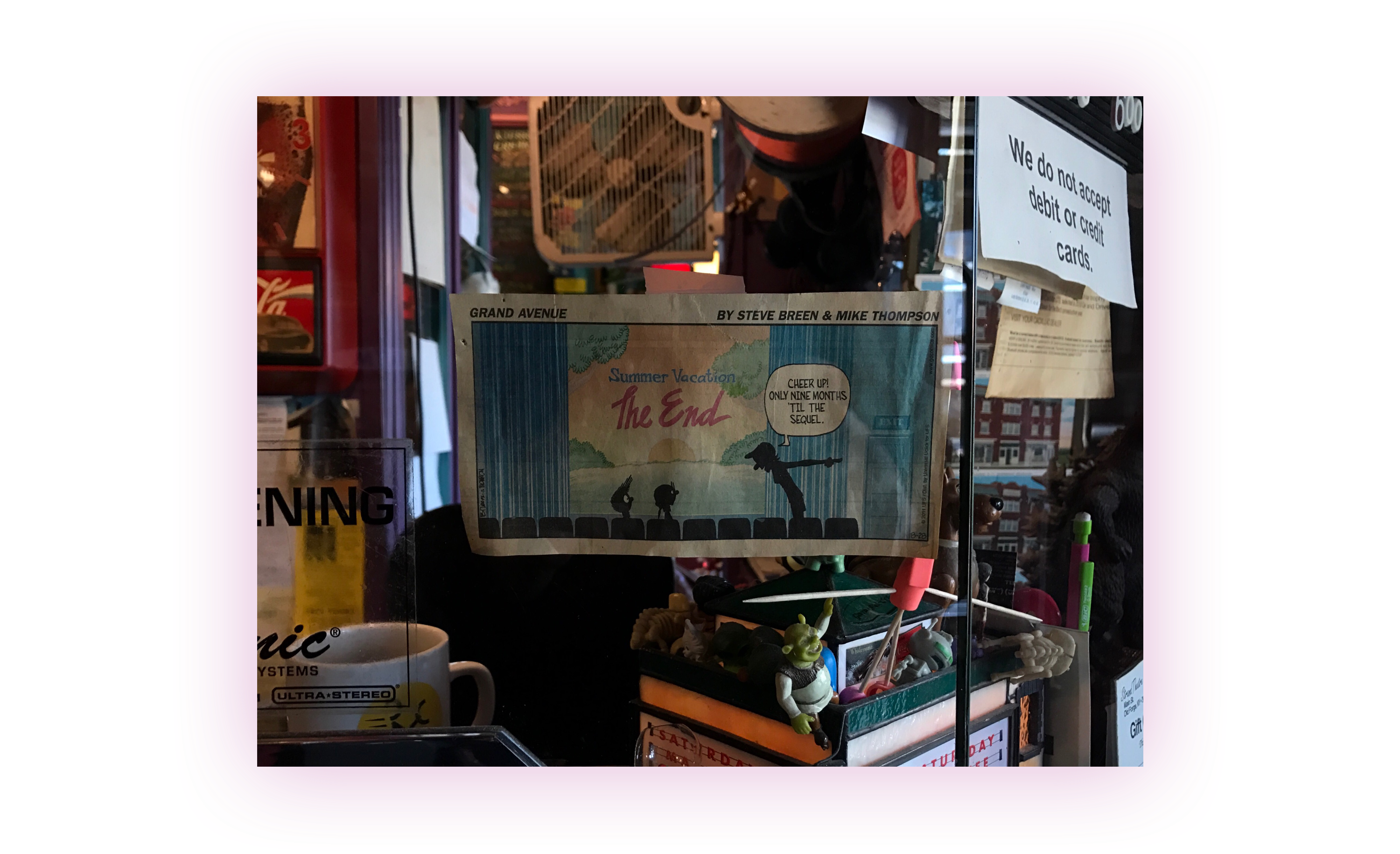
B: Also the disappearance of the longer release windows. The time between being in theatres and on some other platform has shrunk so much. I think that’s a little foolish, too, because you’re taking the incentive away from people spending the money several times.
K: No one knows what that time period even is anymore. And what words do people use to describe it? It used to be, “I’ll wait for video…”
B: “I’ll stream it.”
M: To that end, can you remember some of the more notable past summers, and runs of movies that were just surprising, when the theatre felt packed night after night?
H: I don’t know if it was surprising, but you know, films like Forrest Gump, Jurassic Park… the first one just blew people away, and families were coming in together. That was awesome.
B: Oh yeah, A League of Their Own. Our first summer of running this was 1992 and that was out that year.
K: That was when you still just had one auditorium?
B: Yeah.
K: And that was the summer of Batman Returns, too. It broke the record for opening weekend, but I don’t know if had the same legs as A League of Their Own. But all those movies you just mentioned came out in 1994 at the latest. What happened between 1994 and 2017?
B: There were all the Harry Potter films.
H: Especially when they were summer releases. That was fantastic. Kids would show up dressed up as different characters.
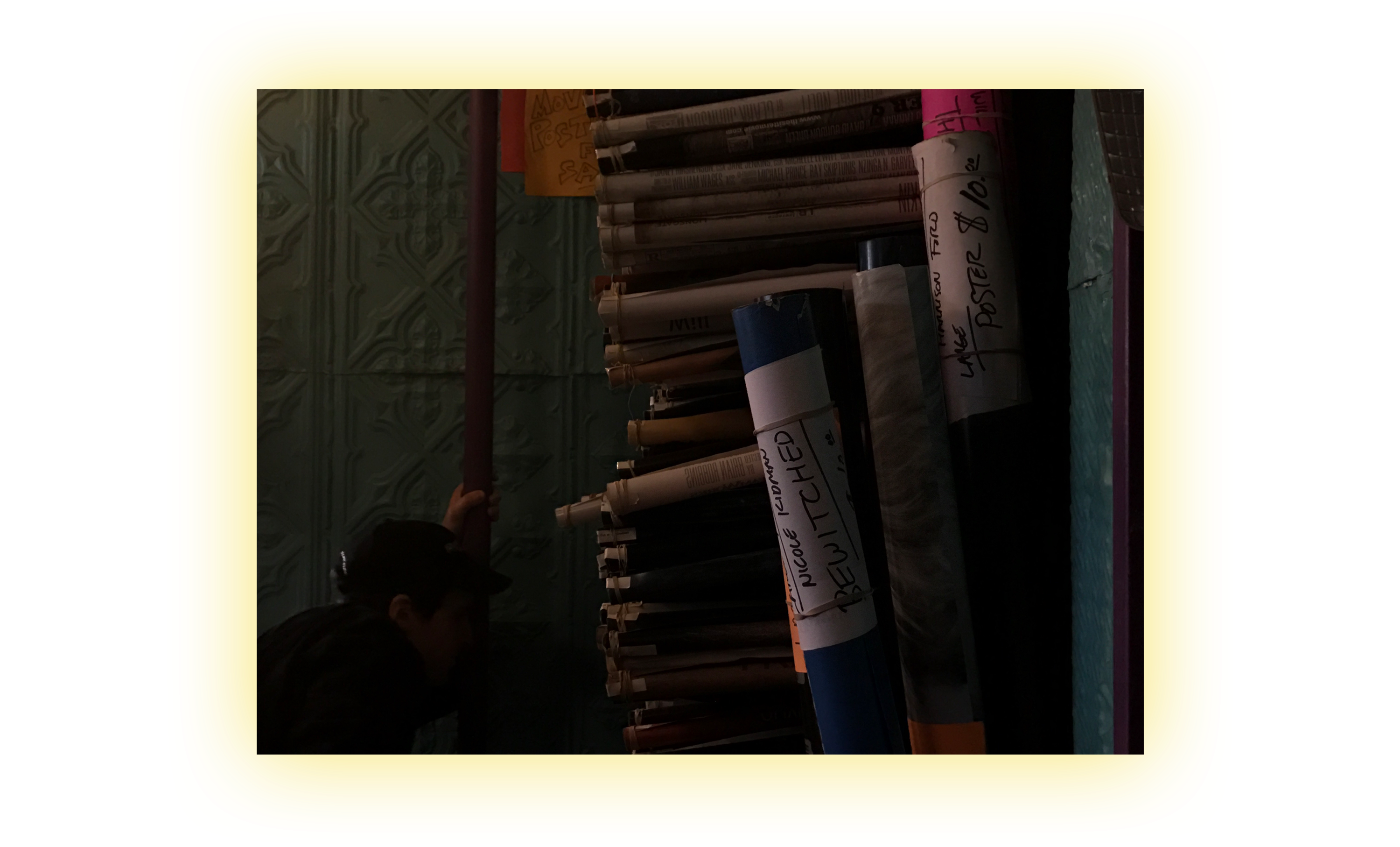
B: We did the midnight advance screenings, and you’d have the line going all around past the arcade, and the stoplight, theatre sold out and people all dressed up. And The Dark Knight did that, too. That was a good room.
H: Well, people dressed up for the Sex and the City movies, too.
B: There was a lot of magic in that.
H: With the midnight screenings, we would hear that kids had missed school. The parents were even mad at us. But that was the point, come on.
B: Midnight shows kind of became a summer staple here, even on Thursday nights, you know, we’d have one or two movies and they’d do fairly well. But we didn’t do any of them this year. Hopefully it’ll come back around.
M: Well, 2015, for instance, was the return of both Jurassic Park and Star Wars. Did those two movies feel like watersheds here? I’m curious if those resonated the way you’d expect.
B: Well, Jurassic opened in June, and that did well… it did better than I thought it was going to do. It hung in there a while. And The Force Awakens of course did well, but it was Christmastime. Christmas is a strong movie time but the population here at Christmas is small. Based on that it was a huge success, but if it had hit in July…
M: It’d be a whole other thing.
B: Yeah. This was a very small thing: there’s a family from Canada that comes in the summertime usually, but one of the kids has a birthday around Christmas, so they started this new tradition where they rent a room, get dinner at Frankie’s and then come to the Star Wars movie for his birthday. They did that last year with Rogue One.
K: Sounds like next year they’ll be able to come during the summer again.
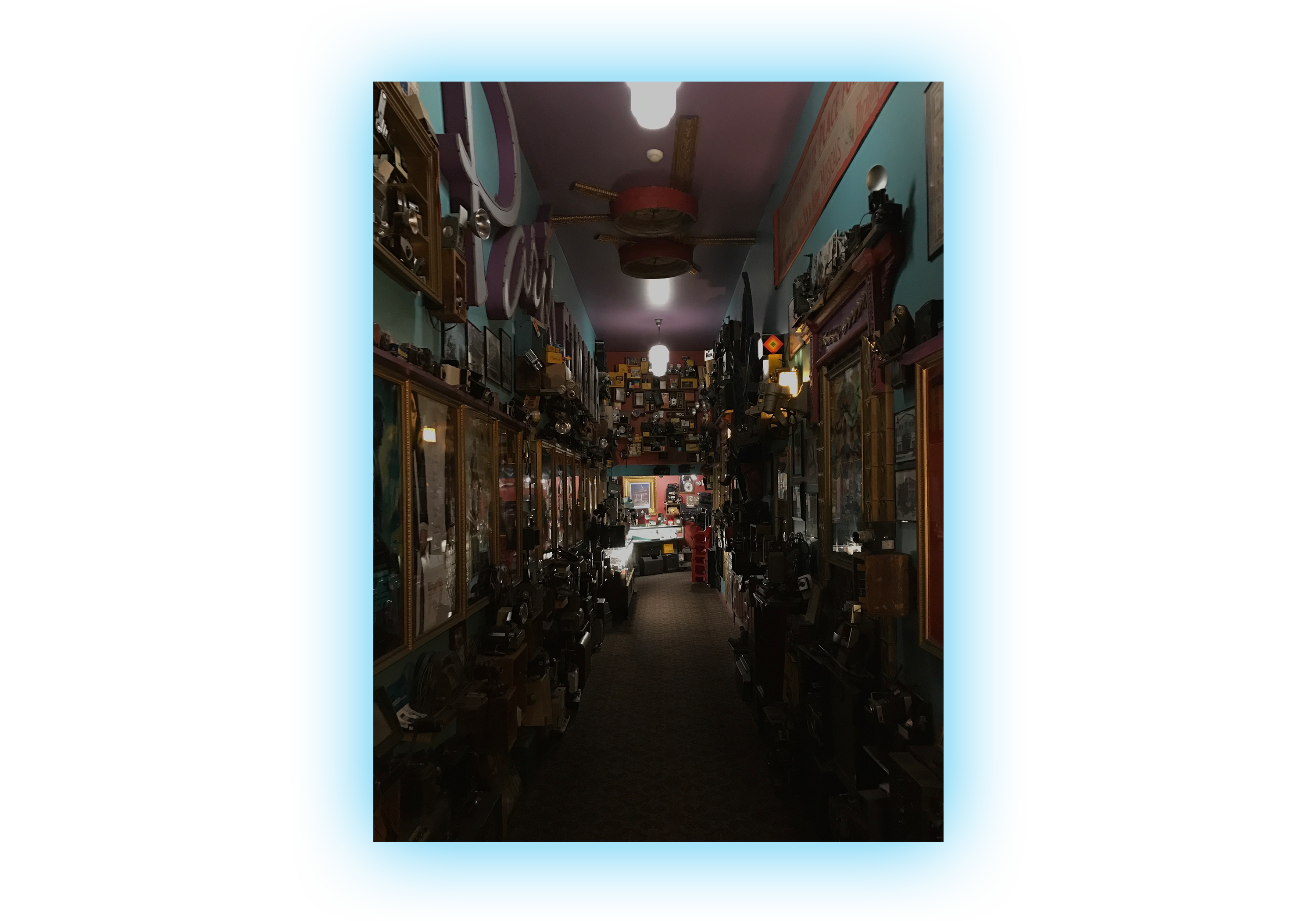
M: Can we ask a little about the background of the theatre? Helen, you’ve mentioned working at a school, along with this… how did you come to the idea of operating a theatre together?
H: Yeah, I was already doing that before we bought this place. We were working jobs in the Utica area, South of here. Bob came up to Old Forge and they were doing a sound job for a band, and he came to see a movie here and just fell in love with the place. And the person that sold him the ticket said, “Hey, it’s for sale.” So it put this idea in his head and he came home and said, “I wanna buy this movie theatre in Old Forge.” And I was like, “What, are you crazy?” The funny thing is I had actually worked at a movie theatre in Utica before, when I was in my early twenties. So I had some movie theatre experience. Yeah, I did think he was crazy, but he convinced me to come up here and take a look. I fell in love with it.
B: It was a piece of crap. Really bad shape.
K: I’m curious what it looked like then?
B: Well, most of this [referring to addition] was a parking lot. The theatre used to open Memorial Day weekend and would run weekends through the Fourth of July, and then they’d run every night until Labor Day, and then weekends after that until it got too cold. Then it would lie empty all winter. It was rough.
K: What was it that made you fall in love with it prior to renovating?
B: It was still a great building. Cool art deco building. A survivor. In a kind of cool area. And we love film and old buildings. I had three buildings in another town that I owned already that I had been restoring.
K: What were they?
B: An old church, and a couple of houses. Victorians.
M: What do you think is special about Upstate [New York], or about Old Forge? You’re obviously really invested in the community.
H: We actually tend to like stuff that’s even older than this building. Like Old Forge Hardware around the corner.
B: It’s great. Old Forge itself is like living in a few different places without leaving. You have the boom in the summer, the quiet spring, and then the fall, which is different again. You know what time of year it is by who you see. And the winter is all about skiing, another population entirely. The core locals are nice, too.
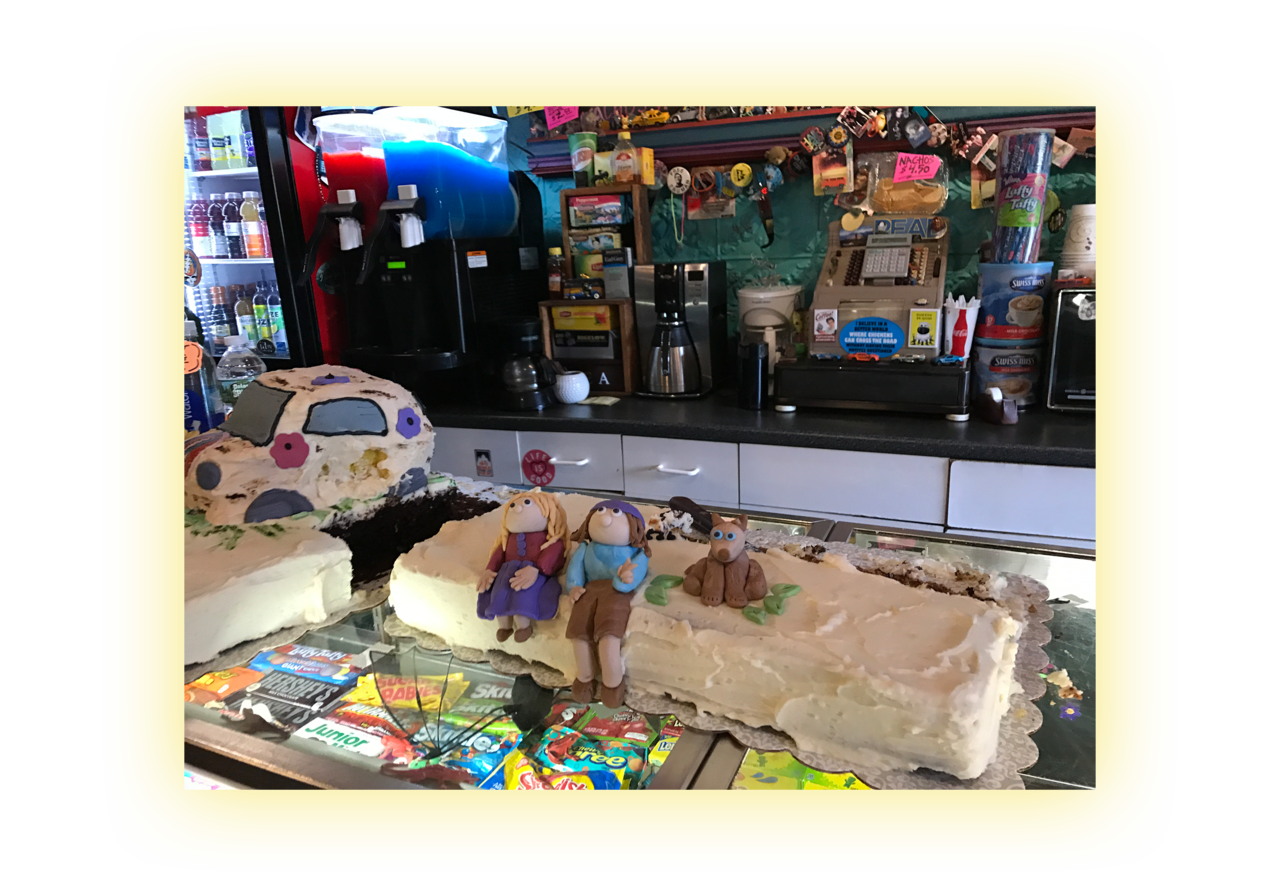
H: We’re pretty surprised with this cake, for instance [referring to anniversary cake]. We didn’t realize they were gonna put it in the paper, and someone called and said, “What if we brought you a cake”, and we said, “Sure, we love cake.” The next thing we know it’s in both papers, and Oh no, what’s happening here? And it was mostly local people who came and stopped in to chat. It’s a nice community to live in, but it does take kind of a long time to get accepted as a local.
M: Are there a lot of movie lovers in Old Forge?
B: That’s funny, that varies.
H: They come and go.
K: Where do they go?
H: That’s what we wanna know!
B: In the beginning people were like, you’re gonna be open all year round? That’s never gonna work. And that just pissed us off. And we were like, we’re gonna make sure this works. It’s funny, thinking back on that time, there were a couple of winters where the theatre was barely getting anybody and I was like, what did I do? And then Titanic and whatever Bond film it was that came out that winter—
M+K: Tomorrow Never Dies.
B: Yeah. We did Bond first, followed by Titanic. And it just brought tons of people out and we’re like, “Oh.” And they just kept coming.
K: And Titanic was originally scheduled to come out in the Summer.
B: Right.
K: Would you consider Titanic a major pivot?
B: Yeah, whether you loved it or hated it, it was a pivot. It brought people out who hadn’t been to the movies in years, and all those people would see it several times. Over and over again.
M: We certainly were included in that.
B: It was a great experience for us.
K: How long were you guys running it for?
B: I think we ran it for a month, which in those days was unheard of.
H: That was still the early days. We were pretty young when we bought this. We were like 27.
K: We should be buying theatres, Mike.
H: Yeah! Why not? But those days were rough because we had all these bills to pay, and I’d get a paycheck from my job as a school librarian and we’d have like, no money, and my personal account and his personal account and the theatre account to watch, and I’d get this check and it was like okay, where does it go? Do I pay my own bills, or do I pay the theatre’s? We basically did it on our own. We didn’t have any help from parents or anything. They’re like, we are not loaning you money to buy a movie theatre.
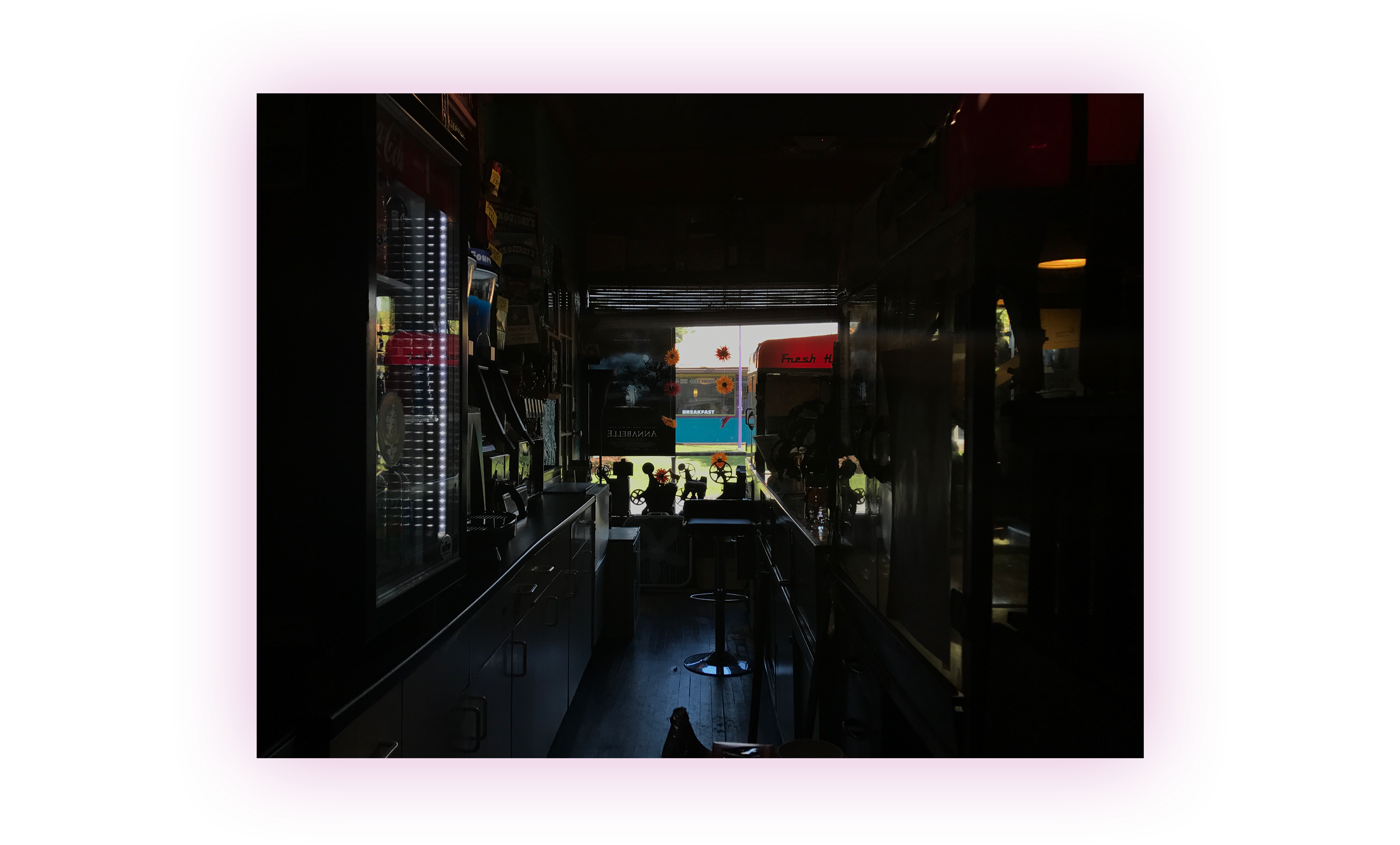
M: I’m kind of curious about your relationship with the industry. Do you ever visit like New York or LA? Are you concerned with industry trends in that way, or do you see yourself as being apart from that?
B: Well, when we started it, we were members of the National Association of Theatre Owners. I kinda felt like they abandoned the smaller independents, so I, you know, we aren’t really active members anymore. I still battle bookings every week, but for such a small market, we do pretty well with getting the first runs we want. Not everything, but most of it. Then there’s the whole matter of the digital conversion, which they shoved down everybody’s throats.
M: Earlier in the lobby you were telling a story about some DCP malfunction where you needed to bring in prints?
B: Yeah, that was our first summer of being fully digital. We had two auditoriums that were still set up to run 35 [millimeter] side-by-side with the digital, and our two biggest auditoriums failed at the same time.
H: Wasn’t it the motherboards on both of them?
B: Yeah. So they’re shipping us parts, which takes days, and some of the parts aren’t working, and we’re in the end of July, beginning of August, some of our biggest weeks of the year. And we’re down two of our biggest auditoriums.
H: We had been down for a couple days. We were never down when we had film. We could always do some splicing or whatever and get it going again.
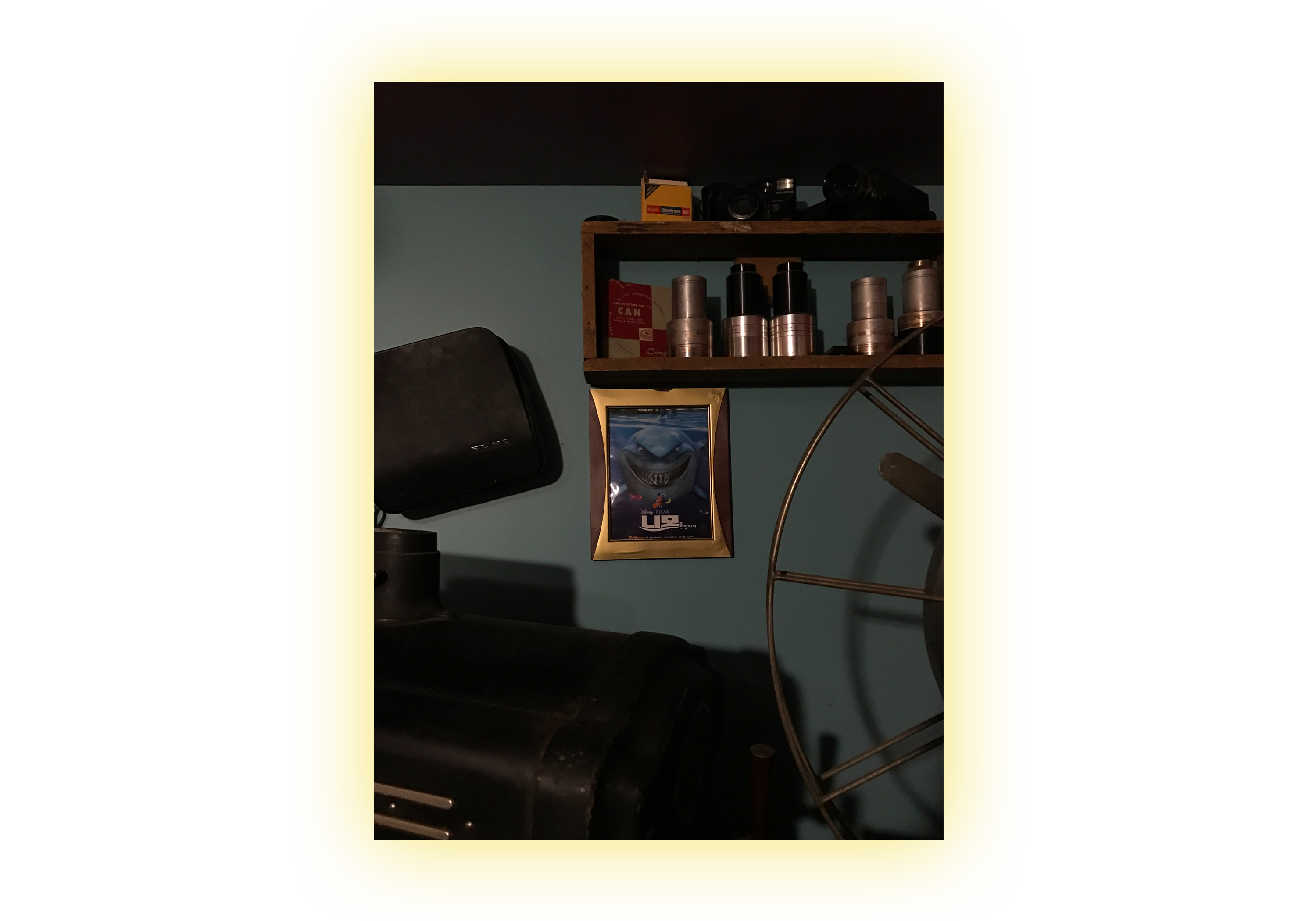
B: Film projectors are really easy to keep going. So then we’re changing our schedule to try to get as many showings as possible into our two littlest auditoriums…
H: So I said, “Well, we still have 35mm facilities, why don’t you see if you can still get some prints on the 35mm?”
B: And the only one that we could was Guardians of the Galaxy. We had a DCP of it but we got it in a 35mm print and put it in the old theatre and we were back up and running with that. So 35 saved the day for that week. Now that’s probably not an option because it’s genuinely gone. There was a little of it left, then. There are a lot of technical issues with the digital systems. When they’re working fine, it’s great, you just tell it which file to play, and that allows us to move auditoriums on a daily basis.
H: That’s one nice thing, you can just do it on the laptop. When we used to have to make a change he’d say, “Helen, take the box office!” And then he’d take the actual physical film and put it on what he called “the donut”, and he’d slide on through the hallway with this big donut with the film on it and he’d take it upstairs or another projection booth. I was always terrified carrying those things.
B: It was fun working with film. We’d get fresh prints, and we’d be sure to take really good care of them so they got sent out of here without a scratch. We were very proud of the operation.
H: We could always tell if it was from some multiplex run by teenagers. You’d get a scratch down the middle of the screen for basically the whole movie. But nothing against teenagers!
H: We also make sure theatres are cleaned as early as possible and between every show. No matter what. We don’t want people sitting there with garage. We’ve experienced that. Remember Iceland?! How filthy that place was? It was disgusting. It was a new theatre, and they did not clean in between shows.
M: Icelanders can be gross, too.
K: What’d you see in Iceland?
H: Ice Age!
B: We were playing it here and didn’t see it. We said just for kicks, we’re gonna watch it there.
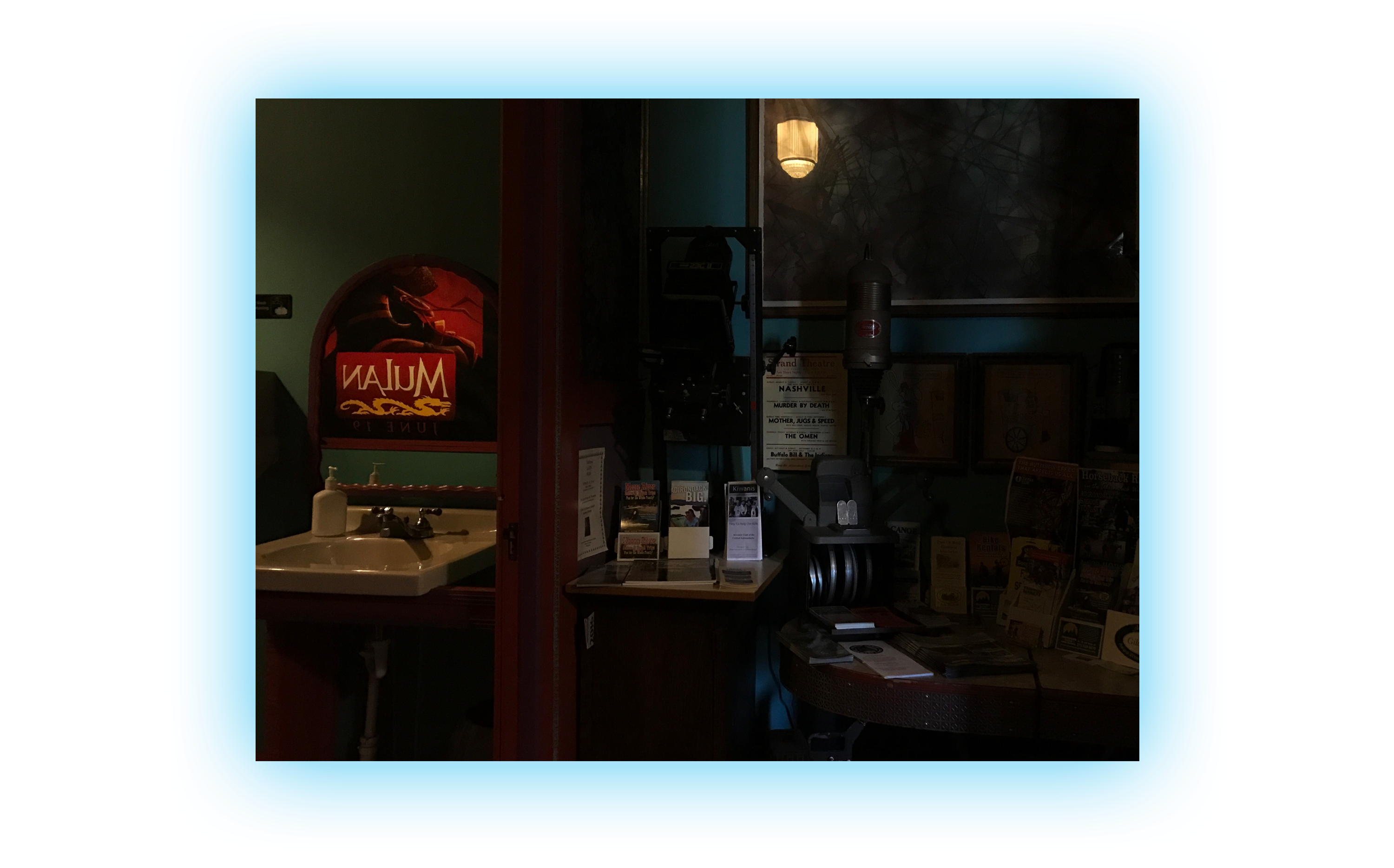
K: On the subject of conversions, how do you guys feel about reclining seats?
B: Oh, I don’t know. They have their place. They’re okay. I’m more of a purist, for an old-style theatre.
H: It was actually more expensive to have our 1930s seats redone than it was to get new ones.
B: How do you guys feel about them [the reclining seats]?
K: In New York and in San Francisco, they’ve really taken over, and my main complaint is that there’s this new distance between moviegoers that it creates—the next seat up is so much further away, and there’s often a dividing wall between each row. You could be in a packed or empty theatre and you’d never know the difference. The experience feels smaller, like somehow roomier and more claustrophobic.
H: I’d thought it’d be the opposite, like you had more space.
K: It doesn’t feel like you’re watching movies with people, which is something we miss.
M: They also kind of explicitly encourage people to fall asleep.
K: Do you watch movies upstairs? [Bob and Helen live above the theatre.]
H: No, we watch ‘em here. We watch everything here. He watched Widespread Panic the other night, they were streaming live from some festival in Virginia and it was like you were at the concert.
M: So if you ever need to watch a movie, you can just project it in the theatre?
H: That’s what we do.
M: Do you have old prints around that you project every once and awhile?
B: We haven’t projected anything in awhile but we have a small collection of prints, yeah.
H: Watching a movie on anything smaller, it’s just not the same experience. You were talking about the reclining seats, I’m just remembering that little baby that was watching Jurassic Park, remember? Someone brought a 2-year-old in to watch Jurassic Park and the kid was riveted. He was like, standing on his mom’s lap with his hands on the seat in front of him and he was just riveted by this movie.
M: Jurassic Park was the first adult movie I ever saw. I was four. I was just blown away.
K: That kid was you.
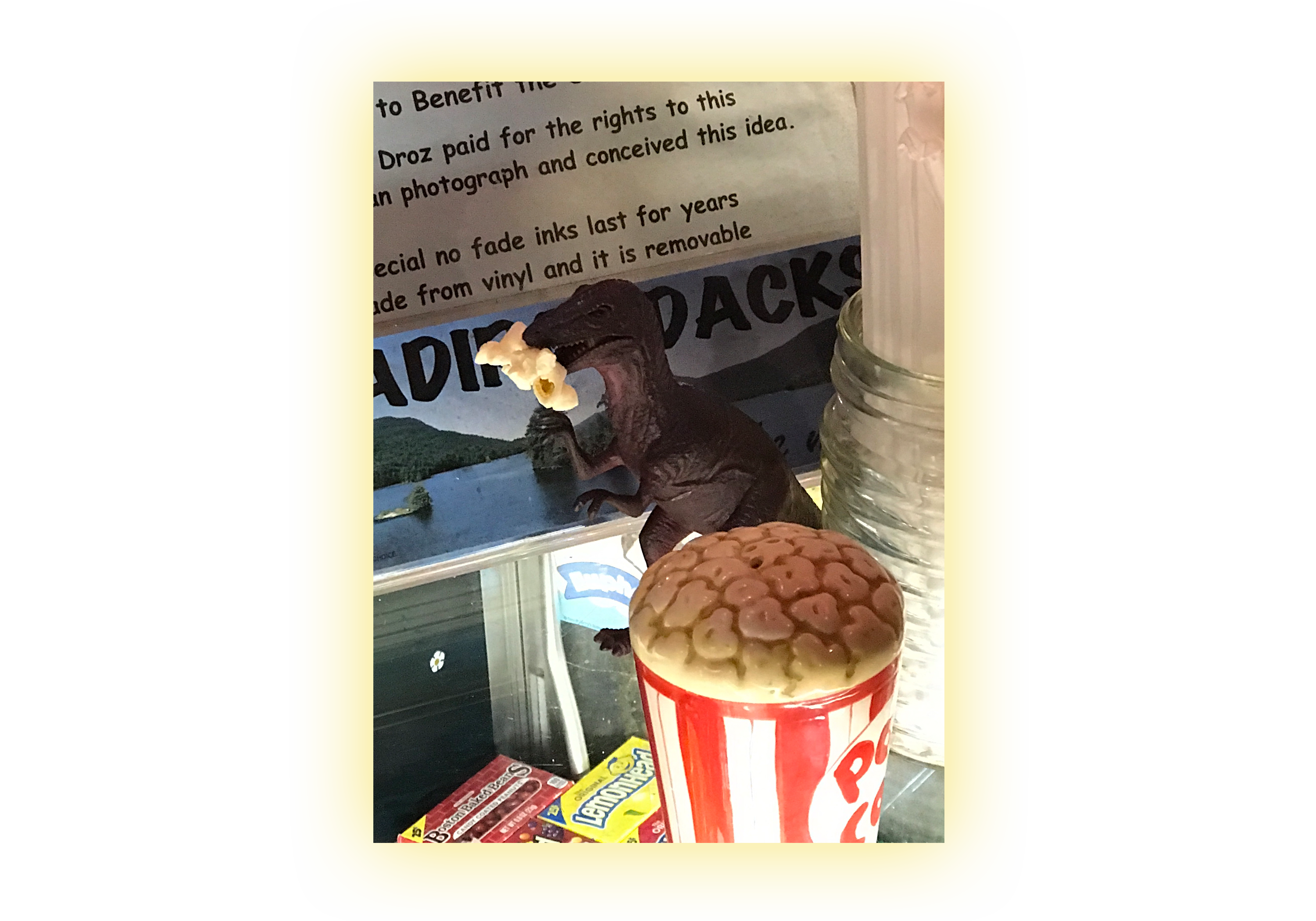
M: Does Noah watch movies?
B: He stays for the trailers and then he’s out of there.
H: Unless there’s food. When there’s families with popcorn, he’s their best friend.
K: Are there any trailers he’s excited about now?
B: I’m not sure.
M: How did bringing him on board change the dynamic of the theatre?
H: We’ve had a few dogs. We try to rescue them. It’s the same husky every single time. Noah has his fan club. There are times in the summer when kids will come to the movies with their families over the weekend, and then Sunday afternoon they’re leaving town and a car will pull up and the kids will run out and say, “Bye Noah! We just came to say goodbye to Noah!”
B: They did that with Argus, too.
H: Oh yeah. Argus was his predecessor.
B: Having a husky as an usher is very welcoming to people.
K: Did you guys do anything special for the release of Noah a couple years ago?
B: [laughing] No, we didn’t.
H: He always looks forward to coming down. Every day we say, “You ready to go to work?”, and he excitedly runs down the stairs.
M: I love all the husky fan art around.
K: Especially the dog drawing taped to the popcorn machine.
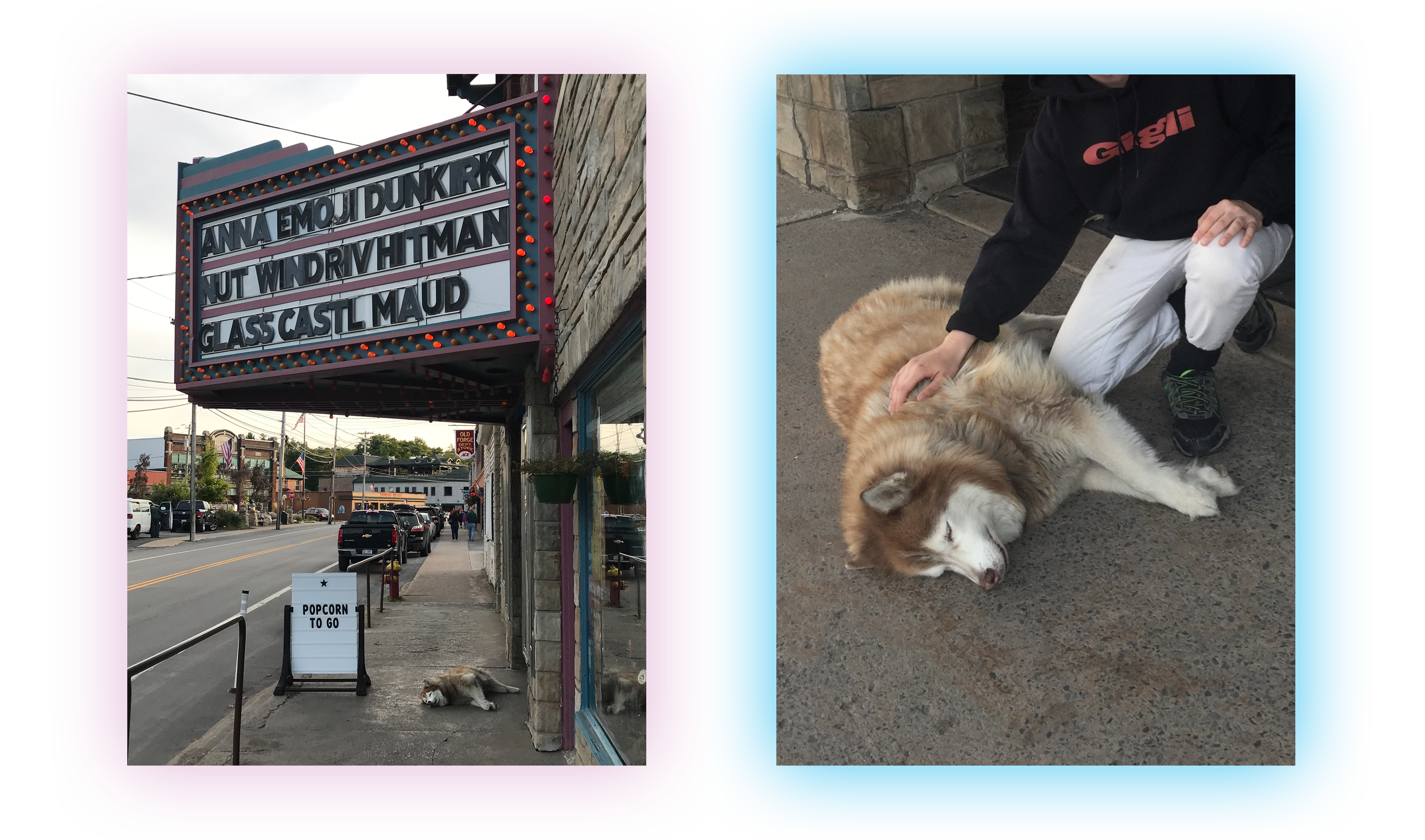
M: While we’re on the subject of having a dog who lives at the theatre—who kind of helps the people into the movies—it reminds us of this possibility of people having a more creative relationship with moviegoing. It’s obviously not what you expect to see in a corporate theatre chain, but even the independent theatres in New York and San Francisco that brand themselves as individuals have this overdesigned corporate hardness. I’m curious if that’s something you’re conscious of, how the little details might change the way people experience movies?
B: Well, I agree. Even this camera collection [referring to a long hallway stacked with antique cameras]. We’ve been collecting them since 1985, way before we were even here. Putting them on display encourages people to participate. Customers retire their cameras here.
H: Some people just come in off the street because they want to see the cameras.
B: For some people, the cameras are a memory thing. For other people it’s a history lesson because they’ve never used any of this stuff. And especially when they retire a camera here, it gives them a connection to place. They can always come back and visit it.
H: Like, “That was my mother’s!”
B: If you treat the people that come to your place like they’re family and friends, they have a connection and tie to it. Places should have a personality.
H: The other day somebody wanted like a large popcorn split up into two medium bags, and most of these corporate places are not gonna do that. Whatever. I was like, you know what, they’re here. I don’t care. Popcorn’s not that expensive. We’ll split it up. I’ve made dinner reservations for people because the restaurant isn’t open yet and they can’t get through and they want to be able to go see their movie but they want to go to dinner afterwards. I’ll take care of it. If there’s a problem, I’ll come find you. We do all kinds of silly little things for people. Like run to the hardware store to pick up a key that they’re having made. We do it all.
K: As moviegoers, we want to believe there’s a lot more than just a movie going on here. Like, you might remember The Nut Job 2 forever because the key to your new apartment was being made at the hardware store down the street during the movie, or because you got to hold hands with your date for the first time.
H: We get that a lot. We get people getting engaged here.
B: We’ve had two weddings here, too. They got married on the stage, and they had an open bar at the concession stand. One couple were dairy farmers. They watched Gnomeo and Juliet in the main auditorium. And then last Thanksgiving weekend there were some real film fans. They got married on the stage and had us playing Buster Keaton silent films while they guests were arriving. They also gave out 3D glasses because after the ceremony they watched a Shrek 3D short.
M: It’s about people’s relationship to culture and storytelling at large. People think they can move on from movies to whatever’s replacing them, but I don’t know that there’s a good option. We’re very hopeful at the same time. We seem to find something every year that gives us a very strong reason to keep going.
B: Yeah.
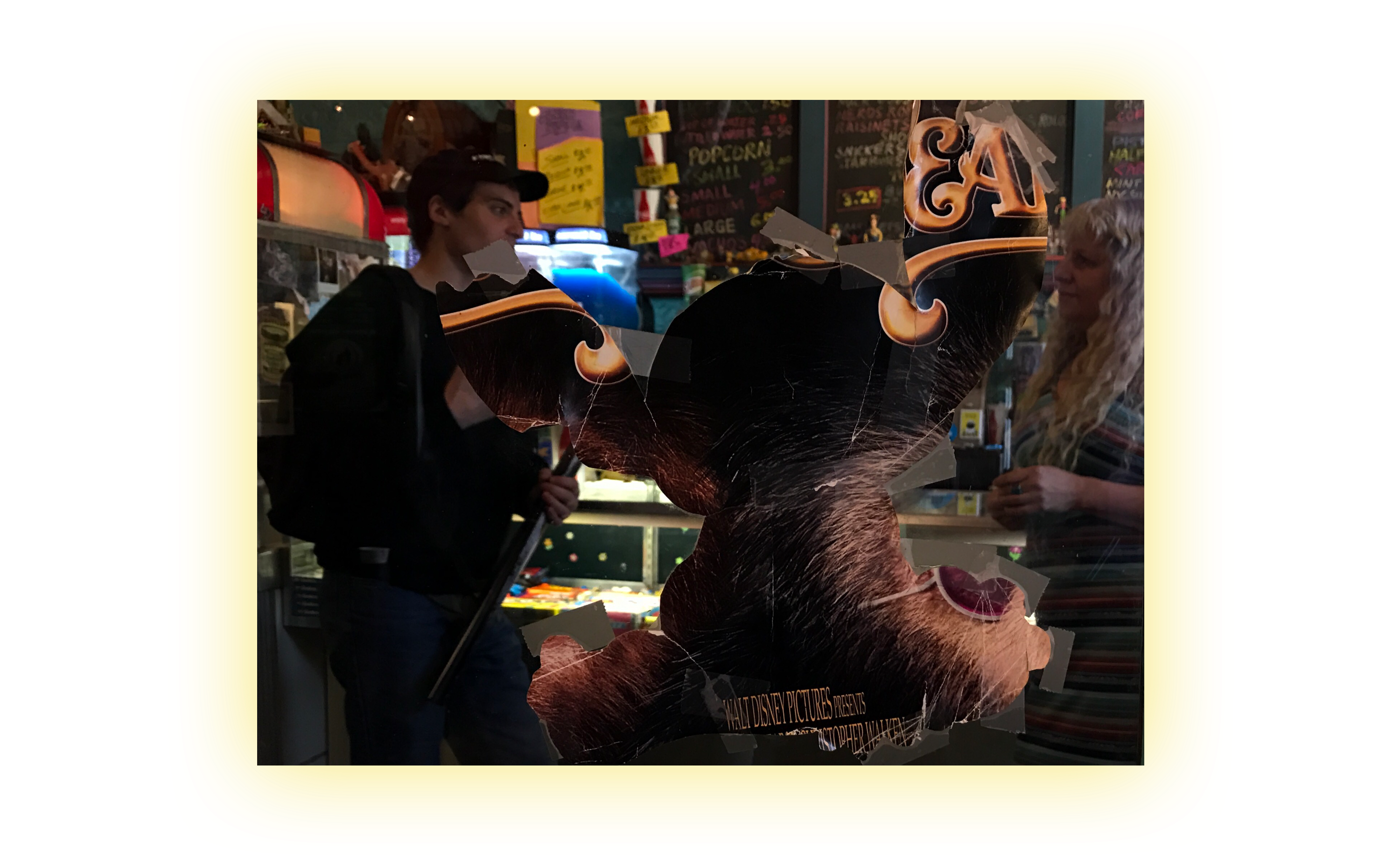
M: Do you travel?
H: We take at least one nice trip a year.
M: Old Forge is sort already like a beautiful vacation.
B: We went to Peru this past April. And we went to Cuba the April before. Albania. Iceland…
[A stream of moviegoers from the Wind River auditorium begins to flow past.]
B: How was it? How’d you like it?
Moviegoer #1: I did, very much.
B: Take care.
H: Oh, there’s more.
[More moviegoers file out.]
K: If I didn’t know better I’d think Wind River was going to pull ahead of The Hitman’s Bodyguard this weekend.
B: That’ll stay #1.
M: Do you pay attention to the box office?
B: Yeah.
K: Where do you get the information?
B: There’s IMDB.
H: Box Office Mojo.
B: Every Sunday night I look at that.
M: Do you find that what’s happening here reflects what’s going on nationwide?
B: Usually.
H: Most of the time, yeah. Every now and again, no.
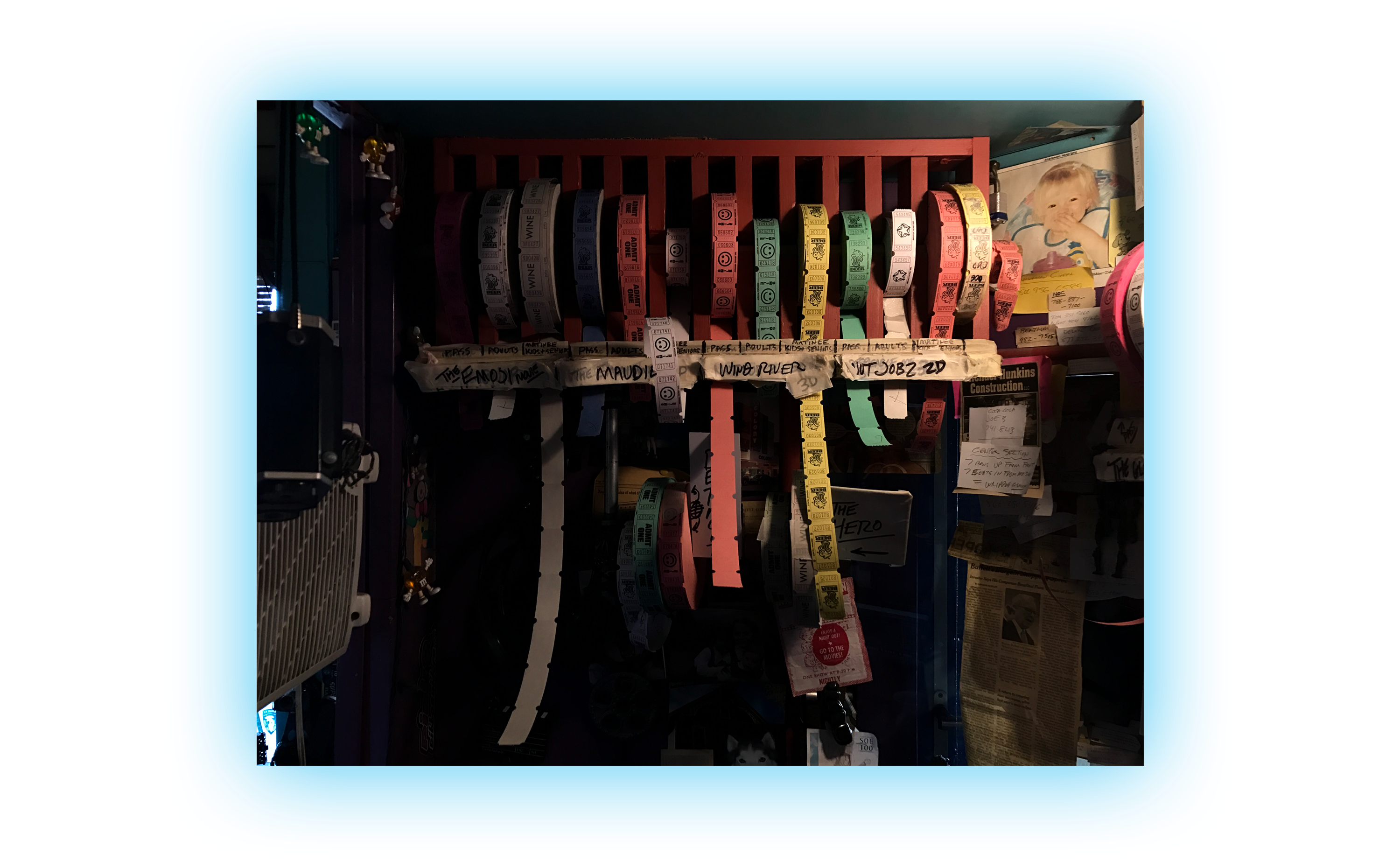
K: Do you have favorite movies?
B: I don’t know about favorites, but special ones. Cinema Paradiso.
H: Yeah, special ones. One of the things I miss the most when we had the one screen is our concession stand faced the screen, and in the early days it was just the two of us, and we watched movies over and over and over from the stand, so we memorized lines and we used to talk ‘em back and forth. And now, we moved our concession stand over here and I was so upset, like, “I’ll never watch another movie again.”
B: One summer, we had Saving Private Ryan here and we were still single-screen, and I remember playing it for three weeks and it was like being in a war, you know? It was just so loud.
H: And people would come out sad. That one was rough.
B: The big thing for me is being out there to thank people when they get out. And get their reactions.
M: So much better than Rotten Tomatoes.
B: Right.
H: Yeah, people will not come to a movie, or be reluctant to, because Rotten Tomatoes says it’s really bad and then they’ll come see it and say, “Oh, that was really good, I’m glad I came after all.” It kills numbers. It’s like the weather apps. When people use it and it’s not accurate, but they didn’t come up [to Old Forge] because it was supposed to rain…
K: That’s an amazing analogy.
H: That’s what happens. They don’t come up here and it ends up being a beautiful day and the motels are empty and it’s all because it was supposed to rain.
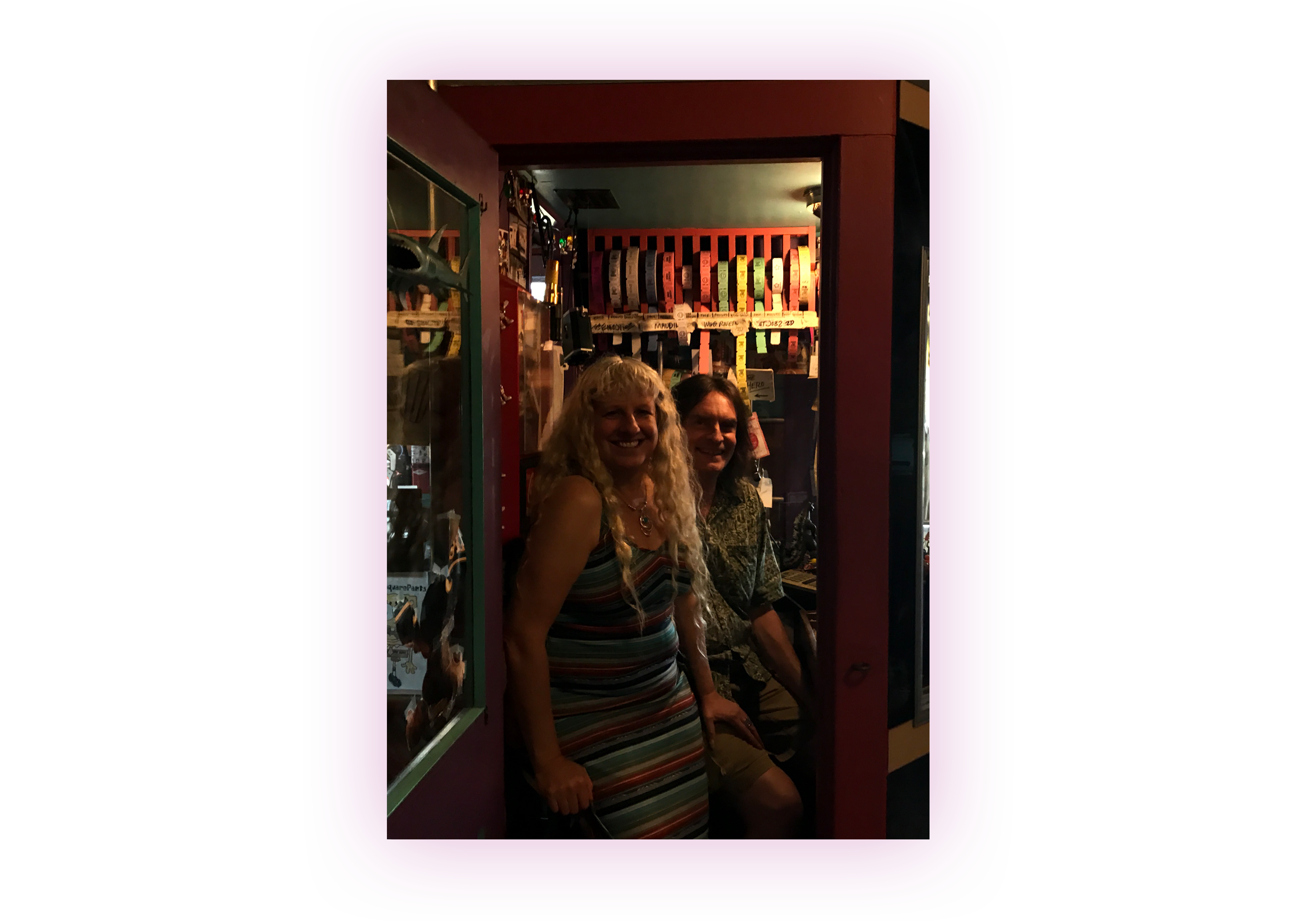
K: So, this being the 25th year you’ve run this, having experienced a lot of changes in both the industry and at The Strand itself, how do you envision this place being a part of your future? Or movies being a part of your future?
H: Well… this is home. We spend a lot of time here. We live right above it. So I don’t see it going away. We want to keep it going, and we hope that we find somebody to take it over and keep it running when we absolutely can’t anymore. Because we don’t have children. We want to see it still going.
B: Or all this work will be for nothing.
M: It seems like Old Forge is built to last, somehow. The fact that Enchanted Forest managed to stay almost the same since the 60s.
B: That’s only had two owners though, the people who founded it in the 50s, and the family they sold it to, who currently have it.
H: It reminds me, when Bob was in his 20s, he helped dismantle this pipe board in an old church that was being torn down, and 20 years later he said, what am I gonna do with this old pipe board? So, he found a church on the Vermont border that wanted to buy it. They restored it, put it together and we were invited to the opening ceremony where they played it. But you know, somebody else would’ve just demolished it. That’s what would’ve happened to it. It would’ve gotten torn down with the building and put in a landfill. He saved it and made this congregation very happy.
M: It’s like that with movies. People want to forget about the last thing and move on, but the time you gave to them is real.
[A high school girl who’s been tending the concession stand peeks in from around the corner, signalling that patrons have begun to arrive for the next showtime.]
